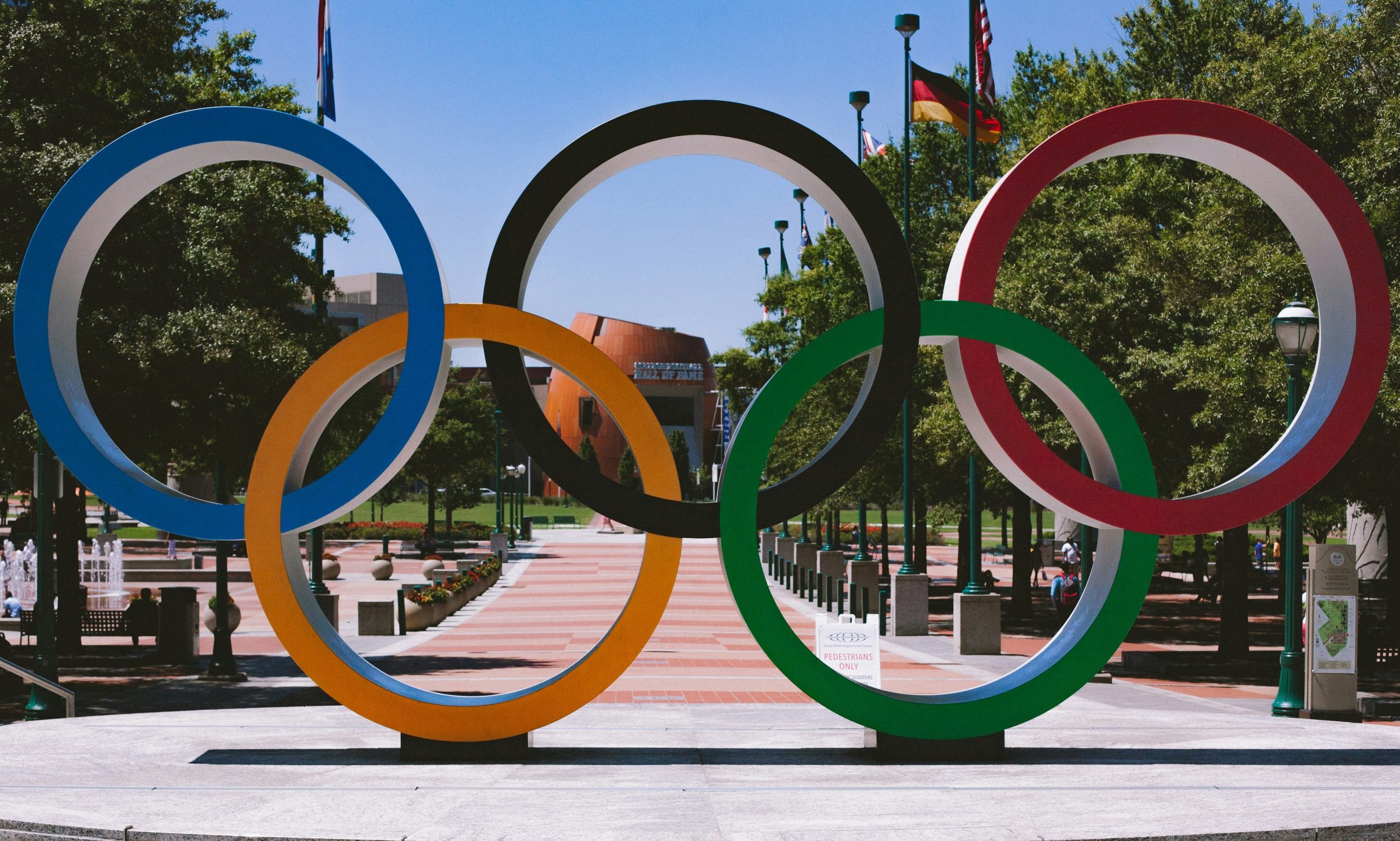Paris 2024: Is hosting the Olympics good for the economy?

Paris is soon to host the Olympics for the third time in history: 1900, 1924 and 2024. This year being the exception to include the Paralympics.
Le grande plan: The biggest sporting event in the world is hoping to attract 13.5 million spectators and four billion television viewers.
The City of Light already ranks as one of the most visited cities in the world with almost 36 million visitors in 2023. And, ideally the Olympics should bring an extra boost to the French economy during times of inflation and a cost-of-living crisis, as tourists and investors descend upon the capital.
Let’s look at the stats:
One ceremony, several firsts
Free admission for many spectators: Lots of fans without tickets will still be able to watch the game on 80 large screens dotted around the city. And also without a ticket, it’s still accessible if you are sat on the upper quays of the Seine.
The opening ceremony will not take place in a stadium, but instead in the heart of the city, along the Seine. It’s the first Olympic Games in history to have an equal number of female and male athletes.
Here are some interesting facts: 10,500 Olympic and 4,350 Paralympic athletes are expected. It has a generous budget of €7.1 billion
Four new additional sports will be added to the competition: Breaking, Climbing, Skateboarding and Surfing 2024.
28 Olympic sports and 24 Paralympic sports will be on display.
Business wise, more than 1,200 companies that are listed on the platform: 15% of the Paris 2024 markets and 95 businesses part of the Social and Solidarity Economy have already secured a contract or are part of a holding group. The Games will focus on sustainability and social responsibility: A special focus on vunerable people will be encouraged to integrate.
Zero waste, and zero food waste, with 100% renewable electricity, carbon-neutral Games. According to the Organisation Committee of the Paris 2024 Olympics and Paralympics, an Olympic and Paralympic Village and a special media village will be built and will become eco-districts. The Aquatic Center in Saint-Denis will have 15,000 places.
Although a lot of planning and architecture goes into the grand making of the Olympics, 95% of the infrastructure already exists: Great Palace (Fencing, Taekwondo), Palace of Versailles (Equestrian, Modern Pentathlon), Champs-Élysées (Road Cycling)
A slice of art
We love how all angles of Paris are involved: The Louvre museum in Paris is planning to organise yoga and sport sessions in its galleries as part of a city-wide cultural programme. But with forecasts of the Games’ economic benefits being far from certain, is it a healthy financial investment for France? And are larger than life sporting events such as this, likely to bring an economic boost to host cities and countries. Or do the costs outweigh the benefits?
President Emmanuel Macron’s hopes to turn the event into a “popular celebration”. The tickets to attend the opening ceremony range from €90 to €2,700 and then there is the several hundred euros it shall cost to go for those arriving from both within France and from abroad.
Poor return on investment rates for previous Olympic Games lead us to concern that the event is often a financial strain on the country.
“This is because many hosts end up spending much money on specialised infrastructure that is of limited use after the event,” Martin Müller, professor of geography and sustainability at the University of Lausanne, said recently in an interview with Euronews Business.
He found that continued maintenance of infrastructure from the 2014 Sochi Winter Olympics has represented a burden of over $1 billion (€920 million) per year ever since.
However, the IOC pointed out that sports venues and general infrastructure do not only serve the four weeks of Olympic and Paralympic Games competition.
“Looking at whether their costs were covered solely by the revenues directly generated by the Games, and calling it a “loss” if they are not, is a simplistic and inappropriate approach from a financial and economic perspective,” the IOC said to Euro News.
On the other hand, what Müller calls the “underestimation of costs and overpromising of benefits” results in host cities rarely breaking even. Profits have been proven possible in modern Olympics history, but fail to compare to the significance of the deficits.
The record profit Los Angeles scored in 1984 occurred under peculiar circumstances: the Californian city was the only bidder and therefore able to obtain looser requirements from the International Olympic Committee (IOC), including the right to use pre-existing infrastructures instead of building new ones.
A similar scenario played out recently when Paris and LA were the only cities left bidding for the Games.
The true price of hosting the Olympics discourages many cities from bidding, especially since even entering the race proves expensive.
“Tokyo spent as much as $150 million on its failed 2016 bid, and about half that much for its successful 2020 bid,” explained James McBride and Melissa Manno from the Council on Foreign Relations (CFR). “Toronto decided it could not afford the $60 million it would have needed for a 2024 bid”.
The IOC indeed brings in a significant amount thanks to its Olympic Broadcasting Services (OBS), which enjoys a monopoly on Olympic broadcasting standards, allowing it to dictate its conditions to other media.
The IOC is financially contributing to the Paris Olympics, including a share of the revenue from Media Rights Holders. The IOC Contribution to Paris 2024 is $1.7 billion, of which $855 million comprises revenues generated from broadcast agreements.
Sounds good, right. However, it’s a mix of optimism and anxious opinion. Le Monde recently reported the uncertain economic impact of the Olympic Games. If the price is right! Forbes looked at a recent study analysing the cost of the Jeux Olympiques in Paris this summer, showing that it will be the most expensive in Olympics history.
As reported in Forbes: “Beer, chips, condoms and wine are among many products whose sales will explode during the Olympic Games,” writes Le Parisien. “According to a study on the impact of the Olympic Games on the sector, the challenge is significant for restaurateurs, businesses and large brands located in the host cities.”
The Center for Sports Law and Economics (CDES) hopes that the Olympic Games could generate as much as €10.7 billion in economic benefits and create up to 247,000 jobs, before, during and after the Games.
Ready, Set, Look Good
Styling a French Olympic team is an Olympian task in itself.
Streetwear star Stephane Ashpool has designed garments for dozens of sports, from swimming briefs to judo gis, reviving his label Pigalle and teaming up with Le Coq Sportif. Resulting in a special apparel celebrating 100 years on since the last games coming back to Paris with historic symbols of XXXIII Olympiad.
The North Face have unveiled the new sport climbing competition uniforms for the Paris 2024 Olympic Games. And Nike released a new special Women Olympics Uniform.
The Opening Ceremony for the Olympic Games will be the largest in Games History.
If you haven’t already got your tickets, you can get them here… https://olympics.com/en/paris-2024/spectator/tickets
Let the games begin!






